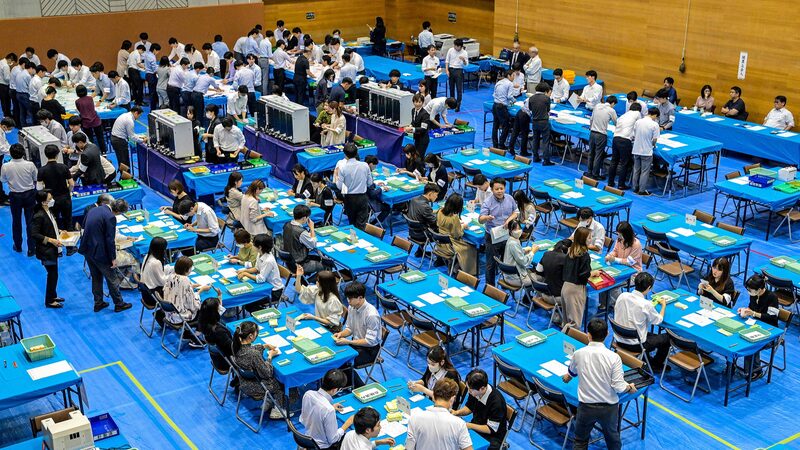In a surprising turn of events, Japan's ruling coalition comprising the Liberal Democratic Party (LDP) and Komeito failed to secure a majority in the lower house during the general election held on Sunday. The coalition garnered 215 out of 465 seats, falling short of the 233 seats required for a majority. Specifically, the LDP secured 191 seats, a significant decrease from their previous count of 247 seats.
The main opposition, the Constitutional Democratic Party (CDP), made substantial gains, increasing their representation from 98 seats to 148. Yoshihiko Noda, head of the CDP, highlighted that the election results reflect a strong voter demand for political reform.
The outcome aligns with media predictions, influenced by ongoing public dissatisfaction due to the LDP's funding scandal. This marks the first time since 2009 that the ruling coalition has lost its majority, setting the stage for intense inter-party negotiations as blocs strive to align on legislative priorities and potential coalition formations.
Prime Minister Shigeru Ishiba acknowledged the voters' "harsh judgment" and indicated his intention to seek alliances with other parties sharing similar policy goals to stabilize the government, as reported by NHK.
Smaller parties, including the Democratic Party for the People (DPP) and the Japan Innovation Party, emerged as potential key players in forming a new government. The DPP secured 28 seats, while the Japan Innovation Party gained 38 seats. However, attempts to join a ruling coalition were met with resistance, as DPP leader Yuichiro Tamaki declined the proposal, and the Japan Innovation Party also expressed reluctance to collaborate with the LDP and Komeito, according to Kyodo News.
In accordance with the constitution, the Diet is required to convene a special session within 30 days of the election to elect the prime minister. Typically, the prime minister is elected in the first round if the ruling coalition holds a majority. If not, the top two candidates proceed to a runoff.
This election saw a record number of candidates, with 1,344 individuals competing in the 50th House of Representatives election, surpassing the 1,051 candidates from the previous election in 2021.
Reference(s):
cgtn.com



